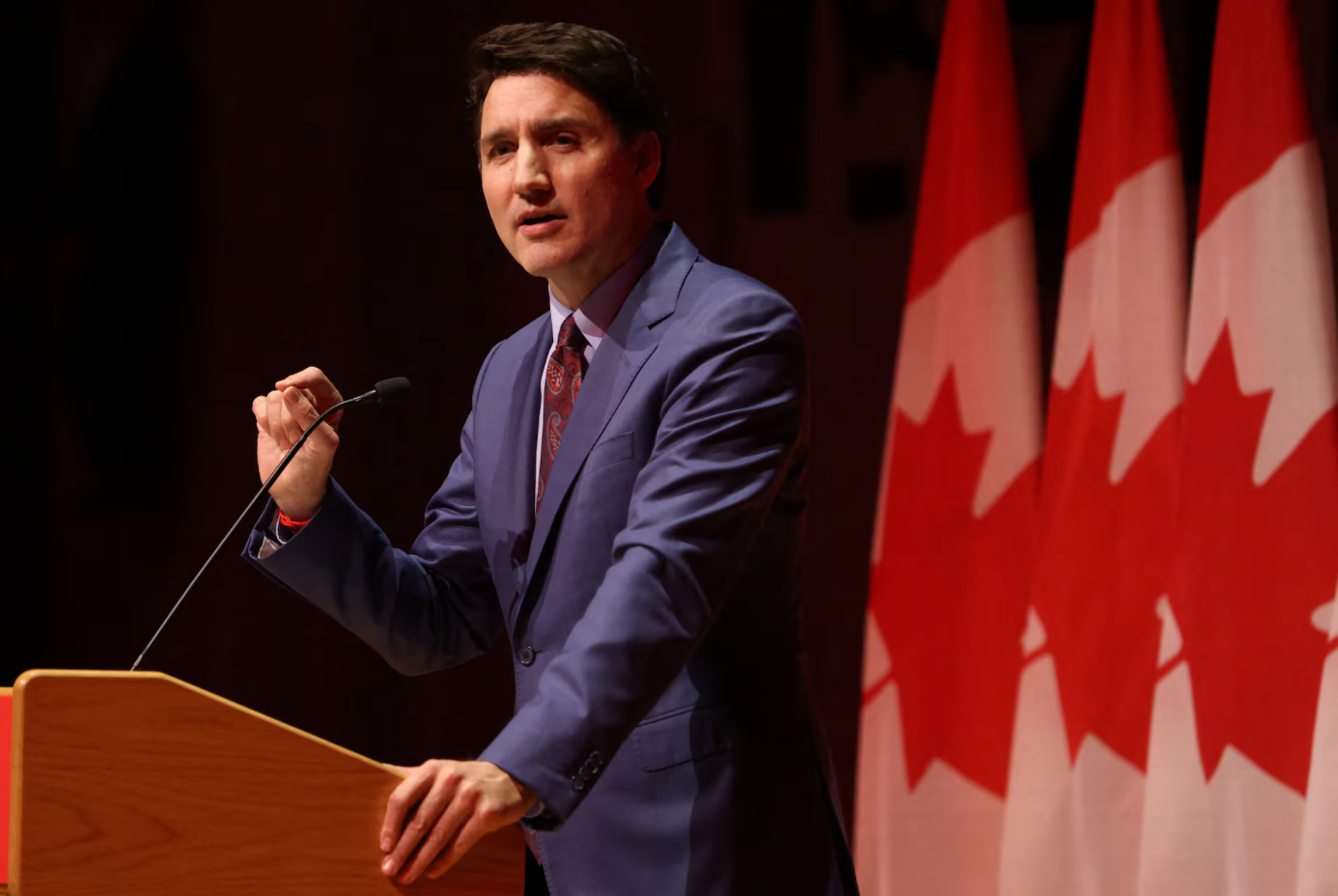Canadian Prime Minister Trudeau may be about to announce his resignation
Reuters news agency quoted a private source as saying on January 5 that it is increasingly likely that Canadian Prime Minister Justin Trudeau will announce his intention to resign, although he has not yet made a final decision.

The source, who asked not to be named, told Reuters after the Globe and Mail reported that Trudeau was expected to announce as early as January 6 that he would step down as leader of Canada's ruling Liberal Party after nine years in power.
Mr. Trudeau's departure will leave the party without a permanent leader at a time when polls show the Liberals will lose heavily to the official opposition, the Conservatives, in an election that must be held before the end of October 2025.
Sources told the Globe and Mail they did not know exactly when Mr. Trudeau would announce his plans to resign, but said they expected it to happen before an emergency meeting of Liberal lawmakers on January 8.
Concerned by a series of poor polls, a growing number of Liberal MPs are calling for Trudeau to resign. The Prime Minister's Office did not immediately respond to a request for comment outside normal business hours. The prime minister's regularly published schedule shows Trudeau will participate virtually in a meeting of the cabinet committee on Canada-U.S. relations on Jan. 6.
It is not yet clear whether Prime Minister Trudeau will leave office immediately or will continue as prime minister until a new Liberal leader is elected, the Globe and Mail source added.
Mr. Trudeau took over as leader of the Liberal Party in 2013 when the party was in dire straits and had fallen to third place in the House of Commons for the first time.
If he resigns, it is likely to spark calls for a quick election to install a stable government capable of dealing with the administration of President-elect Donald Trump for the next four years.
A source told the newspaper that Prime Minister Trudeau has discussed with Finance Minister Dominic LeBlanc whether he would be willing to take on the role of interim leader and prime minister, saying that would be difficult if LeBlanc plans to run for leader.
Mr. Trudeau, 53, has been able to fend off Liberal lawmakers worried about polls and the loss of safe seats in two special elections.
But calls for his resignation have grown since December 2024, when Mr. Trudeau tried to oust Finance Minister Chrystia Freeland, one of his closest allies in cabinet, after she opposed his spending proposals.
Instead, Freeland resigned and wrote a letter accusing Mr Trudeau of using "political maneuvering" instead of focusing on what was best for the country.
Prime Minister Trudeau swept the Liberal Party to power in 2015 with the promise of "brighter days" and a progressive agenda that promoted women's rights and promised to fight climate change.
But the day-to-day realities of governing gradually wore him down and, like many other Western leaders, the need to respond to the effects of the pandemic took up most of his time.
Although Ottawa has spent heavily to protect consumers and businesses, running record budget deficits, this has offered little protection against public anger as prices soar.
A flawed immigration policy has led to hundreds of thousands of immigrants coming to Canada, further straining an already overheated housing market.
